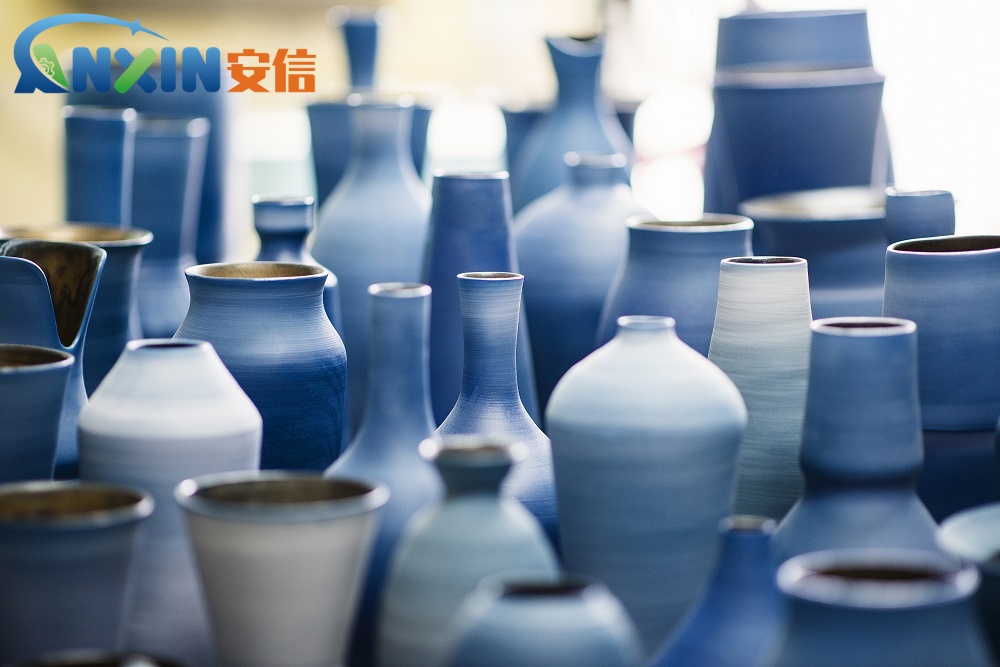Ceramic Grade CMC Carboxymethyl Cellulose
Carboxymethyl cellulose (CMC) has emerged as a vital additive in various industries due to its exceptional properties and versatility. In the ceramic industry, CMC plays a crucial role in enhancing the performance of ceramic materials, improving their processing characteristics, and optimizing end-product quality.
1. Introduction to Ceramic Grade CMC
Carboxymethyl cellulose, commonly known as CMC, is a water-soluble polymer derived from cellulose, a natural polymer found in plant cell walls. The carboxymethyl groups (-CH2COOH) are introduced onto the cellulose backbone through chemical modification, imparting unique properties to the molecule. In the ceramic industry, CMC is used as a binder, thickener, rheology modifier, and water retention agent.
2. Properties of Ceramic Grade CMC
Water Solubility: Ceramic grade CMC exhibits excellent water solubility, allowing for easy dispersion and incorporation into ceramic formulations.
High Purity: It is available in high purity grades, ensuring minimal impurities that could affect the quality of ceramic products.
Viscosity Control: CMC offers precise control over viscosity, facilitating the adjustment of ceramic slurries to desired consistency levels.
Binding Properties: As a binder, CMC forms strong bonds between ceramic particles, enhancing green strength and preventing deformation during processing.
Thickening Effect: It imparts thixotropic behavior to ceramic suspensions, reducing settling of particles and improving stability.
Film Formation: CMC can form thin, uniform films on ceramic surfaces, enhancing adhesion and surface smoothness.
Non-Toxic and Environmentally Friendly: Ceramic grade CMC is non-toxic, biodegradable, and environmentally safe, making it suitable for use in food contact applications and environmentally conscious manufacturing processes.
3. Applications of Ceramic Grade CMC
Ceramic Slurry Preparation: CMC is commonly used as a binder and thickener in the preparation of ceramic slurries for various shaping processes such as casting, extrusion, and tape casting.
Green Machining: In green machining operations, CMC helps maintain the integrity of ceramic green bodies, allowing for precise shaping and machining without cracking or deformation.
Glaze Formulation: CMC is employed in glaze formulations to control rheology, improve adhesion, and prevent settling of glaze components.
Decorative Applications: It is utilized in ceramic printing and decoration processes to create intricate patterns and designs with precise control over ink viscosity and flow.
Electroceramics: CMC finds application in the production of ceramic components for electronic devices, where precise shaping and dimensional control are critical.
4. Benefits of Ceramic Grade CMC in Ceramic Manufacturing
Improved Processing Efficiency: CMC enhances the processability of ceramic materials, leading to increased production efficiency and reduced manufacturing costs.
Enhanced Product Quality: By improving green strength, reducing defects, and ensuring uniformity, CMC contributes to the production of high-quality ceramic products.
Versatility: Its multifunctional properties make CMC suitable for a wide range of ceramic applications, from traditional pottery to advanced technical ceramics.
Consistency and Reproducibility: CMC enables precise control over processing parameters, ensuring consistency and reproducibility in ceramic manufacturing.
Environmental Sustainability: As a natural and environmentally friendly additive, ceramic grade CMC supports sustainable manufacturing practices and aligns with regulatory requirements for green chemistry.
5. Future Perspectives
The demand for ceramic grade CMC is expected to grow further as the ceramic industry continues to evolve and diversify. Ongoing research and development efforts aim to enhance the performance and expand the applications of CMC in ceramic manufacturing. Additionally, advancements in nanotechnology may open up new possibilities for CMC-based nanocomposites with tailored properties for specialized ceramic applications.
Ceramic grade carboxymethyl cellulose plays a vital role in enhancing the performance, processability, and quality of ceramic materials. Its unique properties make it a versatile additive for various ceramic applications, from shaping and forming to glazing and decoration. As the ceramic industry continues to innovate, CMC is poised to remain a key ingredient, supporting sustainable manufacturing practices and enabling the production of high-quality ceramic products.
Post time: Apr-09-2024
